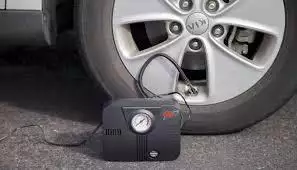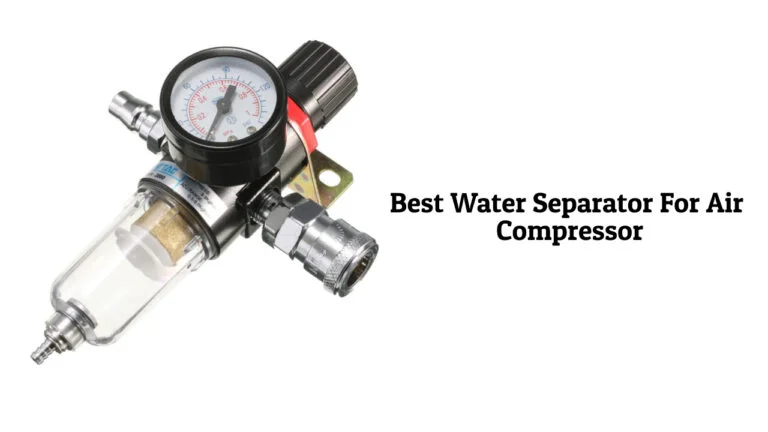NOS Vs. Methanol: the Power Boost Showdown
"In the realm of power boosters, there's a saying, 'more power, more speed.' This adage fuels the ongoing debate between Nitrous Oxide Systems (NOS) and methanol. This article dissects the technicalities, benefits, and drawbacks of using these accelerants, providing an unbiased comparison. We delve into their chemical properties, performance capabilities and practical applications, guiding power enthusiasts in their quest for speed liberation. Welcome to the ultimate power boost showdown – NOS vs. Methanol."
Key Takeaways
- NOS operates by injecting nitrous oxide into the engine intake to increase oxygen during combustion, while methanol is directly injected into the air intake of an engine to reduce air intake temperature and prevent detonation.
- Both NOS and methanol aim to improve engine performance by enhancing combustion and increasing power output.
- NOS provides short-term power boosts by introducing more oxygen into the combustion chamber, while methanol offers consistent power enhancement by reducing air intake temperatures and providing a higher octane rating.
- NOS delivers an instantaneous power increase upon activation and is compatible with various engine types, making it versatile, while methanol optimizes engine performance and power output through increased charge density and improved combustion efficiency.
Understanding the Basics of NOS and Methanol
Before delving into the comparative analysis of Nitrous Oxide System (NOS) and methanol as power boosters, it is crucial to grasp the fundamental operational principles and chemical properties of these engine-enhancing agents. The NOS operates using a nitrous purge system, which involves the injection of nitrous oxide into the engine intake to produce additional oxygen during combustion. This allows the engine to burn more fuel, thus boosting power. A nitrous purge kit is typically utilized to ensure the system's functionality and efficacy.
Methanol, on the other hand, operates differently. Methanol injection is a process where methanol is directly injected into the air intake of an engine. This decreases the air intake temperature, allowing for denser air charge and reducing the chances of detonation. The result is a significant power increase and improved engine performance.
The Chemical Science Behind NOS and Methanol
Delving into the chemical science behind NOS and Methanol necessitates a detailed examination of the molecular structures and reactions that occur within these power boosters. Nitrous Oxide Systems (NOS), often heated with a nitrous bottle heater, rely on the principle of increasing the oxygen supply within an engine's combustion chamber, thereby enhancing the burning of fuel.
On the other hand, a methanol injection kit introduces methanol into the intake air stream, reducing the intake air temperature and increasing the density of the incoming air charge. This results in a more efficient combustion process and increased engine power.
To visualise these processes, consider the following points:
- NOS molecules split under the heat of combustion, releasing extra oxygen to burn more fuel, hence power increase.
- Methanol, when introduced into the air stream, evaporates and cools the intake air, increasing its density and enhancing combustion.
- Both systems aim to create a more efficient combustion process, leading to increased power output.
Power Boosting Capabilities: NOS Vs. Methanol
To evaluate the power boosting capabilities of NOS and methanol, we must first understand the distinct characteristics of each substance. Nitrous oxide (NOS) provides significant short-term power boosts by introducing more oxygen into the combustion chamber, which allows for more fuel to be burned. Methanol, on the other hand, offers a consistent power enhancement by reducing air intake temperatures and providing a higher octane rating, thus enabling more aggressive ignition timing.
NOS Power Potential
A substantial amount of the power boosting capabilities of Nitrous Oxide Systems (NOS) are often compared to those of Methanol, inviting a detailed examination of their respective potentials. NOS, when properly utilized, offers substantial gains in horsepower, often outperforming Methanol in the same conditions.
The power potential of NOS can be highlighted in the following key aspects:
- *Instantaneous Power Increase*: NOS comes into effect instantly upon activation, providing a significant surge of power.
- *Cooling Effect*: The rapid expansion of NOS cools the intake charge, increasing its density, and thereby the amount of oxygen entering the engine.
- *Compatibility*: NOS is compatible with almost any type of engine, making it a versatile power-boosting option.
Methanol Boosting Benefits
Switching our focus to Methanol, the advantages of this alternative power booster, particularly when pitted against NOS, present a compelling argument for its application in performance-driven engines. Methanol, a renewable resource, offers substantial power gains through increased charge density and improved combustion efficiency. Its high octane rating (109 RON) contributes to enhanced detonation resistance, allowing for higher compression ratios and aggressive timing advances. Unlike NOS, which introduces additional oxygen into the combustion process, Methanol actively reduces intake air temperatures, resulting in a denser air/fuel mixture. This leads to a more potent explosion and thus greater power. Additionally, its cooling effect extends to engine parts, reducing the risk of thermal damage. Consequently, the use of Methanol aids in liberating engine potential and optimizing performance.
Pros and Cons of Using NOS as a Power Booster
Utilizing Nitrous Oxide Systems (NOS) as a power booster has both advantages and drawbacks. The discussion that follows will address the performance enhancements offered by NOS, examine potential risks associated with its use, and consider the maintenance requirements inherent to this power-boosting method. This comprehensive analysis will provide a balanced perspective on the practicality and viability of NOS as a power booster.
NOS Performance Enhancements
While Nitrous Oxide Systems (NOS) are commonly used as power boosters in high-performance vehicles, it's important to understand their advantages and potential drawbacks.
- Pros of Using NOS:
- *Increased Power Output*: NOS can significantly boost engine power, providing a substantial speed increase when needed.
- *Temporal Flexibility*: It can be used only when required, ensuring engine longevity.
- *Cost-Effective Solution*: Compared to other power boosters, NOS is more affordable and easier to install.
- Cons of Using NOS:
- *Potential Engine Damage*: Overuse or improper use of NOS can result in engine damage.
- *Legal Restrictions*: In some jurisdictions, usage of NOS is restricted or even prohibited on public roads.
In the next section, we will delve deeper into the potential risks associated with NOS use.
Potential NOS Risks
Despite the various benefits, several significant risks and disadvantages are associated with the use of NOS as a power booster, and these are as crucial to understand as its advantages. Uncontrolled detonation, potential engine damage, and legal issues are a few notable risks.
Here is a table summarizing the pros and cons of using NOS:
| Advantage | Disadvantage | Risk |
|---|---|---|
| Enhanced power and speed | Unregulated detonation | Engine damage |
| Quick and easy to install | Potential engine overheating | Shortened engine life |
| Cost-effective compared to other boosters | Possible legal issues | Fines or prosecution |
| Immediate effect | May void vehicle warranty | Financial loss |
| Popular in racing circuits | Requires expert installation and tuning | Potential for misuse |
These aspects must be considered before using NOS as an engine booster.
NOS Maintenance Requirements
Understanding the maintenance requirements of Nitrous Oxide Systems (NOS) is critical, and this includes both routine upkeep and potential troubleshooting of common issues. NOS, when used as a power booster, presents distinct advantages and drawbacks in terms of maintenance.
- Cost: NOS systems are generally cheaper to install and maintain compared to other power boosters. However, misuse can lead to costly engine damage.
- Ease of Maintenance: Routine checks and refills of the NOS system are relatively straightforward, which allows for quick servicing.
- Potential Damage: Incorrect usage or failure in the NOS system can cause severe engine damage, necessitating extensive repairs.
Pros and Cons of Using Methanol as a Power Booster
In the realm of power boosters, methanol injection offers both significant advantages and notable drawbacks that warrant thorough examination.
The foremost benefit of methanol lies in its cooling properties. Methanol helps reduce the intake air temperature, thereby increasing the air density. This, in turn, allows for a denser fuel mixture, leading to enhanced combustion efficiency and power output. Furthermore, methanol's high octane rating (approximately 116) offers significant resistance to engine knocking, thereby protecting the engine from damage during high-performance operations.
However, methanol is not without its drawbacks. It is corrosive in nature, which necessitates the use of corrosion-resistant materials in the fuel system, increasing overall costs. Methanol also has a lower energy content than gasoline, which means that more fuel is required to produce the same power output. Additionally, methanol's volatility can cause difficulties in starting the engine in cold temperatures.
Real-World Applications and Results: NOS Vs. Methanol
Both NOS and methanol have a variety of real-world applications, and evaluating their performance in these contexts provides valuable insights into their relative strengths and weaknesses.
In automotive racing, Nitrous Oxide Systems (NOS) is often preferred due to its capacity to provide a quick and significant boost in horsepower. NOS is usually used in short bursts, as continuous use can lead to engine damage. On the other hand, methanol is favoured in endurance racing for its cooling properties and consistent performance. It is also used in drag racing, where the high-octane rating allows for higher compression ratios and increased power.
However, in terms of environmental impact, both substances have their drawbacks. NOS releases nitrogen oxides, a contributor to smog, while methanol produces formaldehyde, a carcinogen.
Here are some key points to consider:
- NOS provides a quick, significant power boost but can cause engine damage with prolonged use
- Methanol offers consistent performance and cooling properties, ideal for endurance racing
- Both have environmental implications: NOS contributes to smog, while methanol produces carcinogenic formaldehyde.
Frequently Asked Questions
What Are the Environmental Impacts of Using NOS or Methanol as Power Boosters?
The use of NOS (Nitrous Oxide System) and methanol as power boosters can contribute to air pollution. Nitrous oxide is a potent greenhouse gas while methanol combustion can produce harmful substances like formaldehyde.
Are There Any Legal Restrictions or Regulations Around the Use of NOS and Methanol in Vehicles?
Yes, legal restrictions exist for the use of NOS and methanol in vehicles. These regulations vary by location and are designed to control emissions, ensure safety, and protect the environment from potential harm.
How Much Does It Typically Cost to Install and Maintain a NOS or Methanol Power Boosting System?
The cost to install and maintain a NOS or methanol power boosting system varies significantly, typically ranging between $500 and $2000. This depends on factors like the specific system, vehicle compatibility, and labor charges.
What Safety Measures Should Be Taken While Handling NOS or Methanol for Vehicle Enhancement?
When handling NOS or methanol for vehicle enhancement, one should wear protective gear, avoid open flames, ensure adequate ventilation, and follow manufacturer guidelines to prevent potential hazards, ensuring a smooth ride on the road to power.
Are There Specific Makes or Models of Vehicles That Are More Suitable for NOS or Methanol Power Boosting?
Certain vehicles, particularly those with robust engines and cooling systems, are more suitable for NOS or methanol power boosting. High-performance cars, such as sports or racing cars, are often prime candidates for such enhancements.
Conclusion
In conclusion, both NOS and Methanol serve as effective power boosters, each offering unique advantages. NOS, with its instant power boost and simplicity, is ideal for short-term performance enhancement. Methanol, on the other hand, offers a cooler combustion process and a steady power supply, making it suitable for endurance. The choice between these two power boosters depends on the specific requirements of the engine and the intended application.







